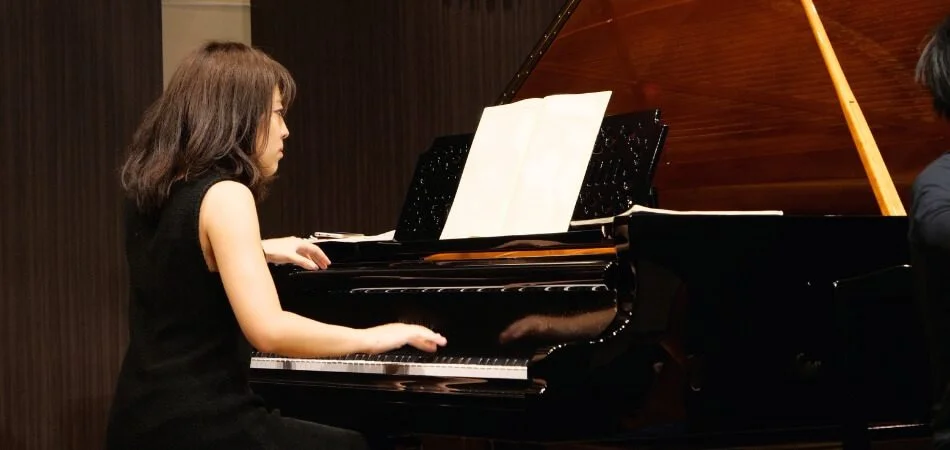At a conference, creating the right atmosphere is essential for setting the tone and keeping attendees engaged. The ambiance can range from professional and serene to lively and dynamic, depending on the event’s purpose. So, what kind of music do you play at a conference?
The choice of music should align with the conference’s theme and atmosphere. Soft instrumental or jazz tracks are popular for creating a relaxed ambiance, while upbeat tunes can energize the audience. For special events, live performances or theme-specific music can add a unique touch.
It is also possible to add value to the overall experience by creating custom playlists tailored specifically to the conference’s vibe. Find out how you can choose the right music for your next conference by reading the following article.
Why Does Conference Atmosphere Matter?
A conference’s atmosphere plays a critical role in setting the tone of the event, which is why it is crucial to create the right atmosphere. Attendees immediately sense the vibe, which influences their engagement level. A well-curated atmosphere helps in keeping participants focused and comfortable throughout the sessions. This ultimately enhances the overall conference experience for everyone involved.
The atmosphere also reflects the event’s purpose and theme, guiding attendees’ expectations. Whether it’s a serious, professional gathering or a more relaxed, creative event, the ambiance plays a key role. Choosing the right elements, like lighting, seating arrangements, and music, can make a significant difference. These details help create a cohesive environment that resonates with the audience.
Additionally, a carefully crafted atmosphere can encourage networking and collaboration among attendees. When people feel at ease, they’re more likely to interact and share ideas. This fosters meaningful connections that can extend beyond the event itself. Ultimately, the atmosphere sets the stage for success.
Significance of Music in Conference Environments
The atmosphere of a conference is shaped by various factors, and music is a key element in creating the right environment. Whether it’s setting the tone for a keynote speech or providing a backdrop for networking, music plays a significant role. Understanding its impact can help you make informed decisions about the best music to play at a conference.
- Music helps establish the event’s overall mood, influencing how attendees perceive the conference. Choosing the right genre aligns with the event’s theme.
- It can energize or relax the audience, depending on the timing and purpose. Upbeat tracks may invigorate, while soft tunes calm.
- Music fills gaps between sessions, keeping the atmosphere lively and engaging. This prevents awkward silences and maintains a continuous flow.
- Live performances during special segments can make the event memorable. They add a unique touch that resonates with participants.
What Kind of Music Do You Play at a Conference?
Organizing a conference involves numerous details, and the right choice of music is crucial for setting the desired ambiance. Selecting tunes that enhance the event’s atmosphere can make it both memorable and engaging. Here’s an Exploration of what kind of music do you play at a conference:
 Setting the Tone with Classical Music: Elevating Professional and Academic Conferences
Setting the Tone with Classical Music: Elevating Professional and Academic Conferences
Classical music is often associated with elegance and sophistication, making it an excellent choice for professional and academic conferences. Its timeless appeal creates a refined atmosphere that is both welcoming and conducive to serious discussions.
The unobtrusive nature of classical music allows attendees to engage in conversations and networking without the distraction of lyrics or overpowering melodies. For the best results, opt for soothing compositions, such as those by Bach or Vivaldi, rather than more dramatic pieces like Beethoven’s symphonies, to maintain a calm and focused environment throughout the event.
Jazz for a Lively Vibe: Perfect for Receptions and Networking
Jazz music brings a lively yet sophisticated atmosphere to conference settings, particularly during evening receptions or networking breaks. The genre’s blend of spontaneity and structure makes it a perfect backdrop for events where interaction and engagement are key.
Light jazz tunes, especially those featuring soft saxophone or piano, uplift the mood without overwhelming the audience, allowing conversations to flow naturally. This choice of music to play at a conference adds an element of energy and creativity while maintaining a professional tone, making it a versatile option for various segments of the event.
Instrumental Pop for Modern Appeal: Bridging Classic and Contemporary Tastes
Instrumental versions of popular songs offer a modern, familiar touch that resonates with a broad audience. This genre combines the recognizable melodies of contemporary hits with the subtlety of instrumental arrangements, making it both comforting and enjoyable for attendees.
By eliminating lyrics, the music remains unobtrusive, allowing for focused discussions and networking. Instrumental pop bridges the gap between classic and contemporary tastes, making it a versatile choice that can appeal to diverse age groups and preferences and suitable for a wide range of conference settings.
Ambient Music for Relaxation: Creating a Calming Environment
Ambient music is characterized by its smooth, continuous tones that create a serene and tranquil atmosphere, making it ideal for use during breaks or in quieter spaces at conferences. A gentle, flowing ambient track helps attendees relax and reduce stress, taking their minds off the more intense sessions.
This genre is particularly effective in areas designed for rest or casual networking, where a calm environment is essential for recharging and unwinding. Selecting ambient music can significantly enhance the overall conference experience by promoting a sense of peace and well-being.
Acoustic for a Casual Atmosphere: Ideal for Informal and Outdoor Settings
Acoustic music, with its warm and inviting sound, is perfect for creating a relaxed and friendly atmosphere, especially in informal or outdoor conference settings. Instrumental acoustic pieces, such as guitar or piano, offer a mellow backdrop that encourages conversation without the distraction of lyrics.
This genre is particularly suited for settings where a casual and approachable vibe is desired, allowing attendees to feel at ease and more open to interaction. Acoustic music’s simplicity and charm make it an excellent choice for networking events, outdoor luncheons, or any part of the conference where a laid-back atmosphere is essential.
Soft Electronic for Modern Flair: Energizing Tech and Creative Industry Events
Soft electronic music introduces a contemporary and innovative edge to conferences, especially those focused on the tech or creative industries. With its ambient or downtempo tracks, this genre adds a subtle energy to the environment without detracting from the event’s primary focus.
The smooth, rhythmic beats of electronic music can subtly energize the space, making it feel modern and dynamic, while still maintaining a professional atmosphere. This choice is particularly effective in conference settings that aim to highlight innovation, creativity, and forward-thinking, offering a soundscape that complements the event’s theme.
Cultural Music for Themed Events: Enhancing Thematic Experiences with Authenticity
Incorporating cultural music into themed conferences adds depth, authenticity, and a sense of place, enriching the overall experience for attendees. Selecting music that reflects and respects the culture being celebrated or discussed not only enhances the thematic experience but also demonstrates cultural sensitivity and awareness.
Whether it’s traditional folk music, classical pieces from a particular region, or contemporary cultural expressions, this approach can make the event more immersive and meaningful. It’s especially effective in conferences centered around cultural topics, international relations, or regional studies, where the music can reinforce the theme and create a memorable atmosphere.
The choice of music at a conference is a key element that contributes significantly to the event’s success. Tailoring your music selection to the theme and audience ensures an optimal and enjoyable experience for all attendees.
Factors to Consider When Choosing Conference Music
Music selection for a conference requires careful consideration of a variety of factors to achieve the desired atmosphere. A conference’s theme should be complemented by music that appeals to the audience’s preferences and meets the venue’s specific requirements. Here are key factors to keep in mind when selecting conference music:
- The theme of the conference dictates the style and tone of the music. Aligning music with the event’s theme enhances the overall experience.
- Audience demographics play a crucial role in music selection, ensuring relevance and resonance. Different age groups may prefer varying musical genres.
- Venue acoustics must be considered, particularly when soundproofing conference room areas to avoid disruptive noise. Music should be clear and not overpower conversations.
- The purpose of each session influences the music choice, whether it’s energizing or calming. Music should support the session’s objectives seamlessly.
- Timing is essential, with different music required for various segments of the event. For example, upbeat tunes may suit the opening, while soft music is better for breaks.
- Volume control is critical to maintaining a balance between background ambiance and audible clarity. It’s important that music doesn’t overshadow discussions.
How Music Improves the Conference Experience?
Music plays a vital role in enhancing the overall experience of a conference. It not only sets the tone but also influences how attendees perceive and engage with the event. Understanding the benefits of incorporating music can help in creating a more memorable and effective conference environment.
Setting the Mood for the Event
Music helps establish the desired atmosphere, guiding attendees’ expectations and mindset. A well-chosen soundtrack aligns with the event’s theme, creating a cohesive experience. Whether it’s a lively or calm vibe, music effectively communicates the intended mood. This strategic use of music can make the event more engaging and immersive.
Achieving Higher Audience Engagement
Background music keeps the energy levels balanced, preventing lulls in the event’s flow. Upbeat tracks can energize attendees, keeping them attentive and focused. During breaks, soothing tunes provide relaxation, preparing participants for the next session. Music serves as a subtle tool for maintaining audience interest throughout the event.
Facilitating Networking and Interaction
The right music encourages conversation and networking by creating a comfortable environment. Soft, unobtrusive music in networking areas allows attendees to engage more freely. It helps reduce awkward silences, making interactions smoother and more natural. This atmosphere fosters meaningful connections, enhancing the event’s value.
Reducing Stress and Promoting Relaxation
Soothing music during breaks or in relaxation areas helps attendees unwind, reducing stress levels. This mental break is essential in maintaining focus and preventing burnout during long conferences. A relaxed mind is more receptive to new information and ideas. Music creates a space where attendees can recharge and stay mentally refreshed.
Incorporating music into a conference isn’t just about filling silence; it’s about enhancing the entire experience. From setting the mood to encouraging engagement, music is a powerful tool that can make your event more impactful and enjoyable. When planning your next conference, consider how music can contribute to creating a successful and memorable event.
Essential Tips for Implementing Music at a Conference
Adding music to a conference can significantly enhance the ambiance and overall attendee experience. However, successful implementation requires careful planning and consideration. Here are some essential tips for implementing music at your conference:
Plan for Music Selection
Start planning your music selection well in advance. Consider the event’s theme, the demographics of your audience, and the message you want to convey through the music. Choose genres and tracks that align with these factors.
Create Playlists for Different Moments
Prepare playlists tailored to various conference segments. For example, have a calming playlist for registration, lively tunes for networking sessions, and inspirational music for keynotes. Each playlist should match the mood and purpose of that specific moment.
Keep Volume Levels in Check
Maintain an appropriate volume level for the music. It should be audible but not so loud that it hinders conversation. Regularly monitor sound levels to ensure they remain comfortable for attendees throughout the event.
Test the Sound System
Conduct thorough sound system tests before the conference begins. Check for technical issues, ensure smooth playback, and verify that the music equipment is in working order. Having backup equipment on hand is a wise precaution in case of any unexpected problems.
Coordinate with Speakers
Work closely with conference speakers to ensure a seamless integration of music and presentations. Music should fade out during speeches to avoid distractions. Effective coordination enhances the flow of the event and maintains the focus on the content.
Be Mindful of Copyright
Ensure you have the necessary licenses or permissions to play copyrighted music at your conference. Alternatively, opt for royalty-free or licensed music to avoid legal issues. Compliance with copyright regulations is essential to prevent any unforeseen complications.
Implementing music at a conference can elevate the attendee experience, but it requires careful planning and consideration. By selecting the right music, managing volume levels, and coordinating with speakers, you can create a seamless and enjoyable musical backdrop for your event.
Conclusion
In crafting the perfect ambiance for a conference, the choice of music plays a crucial role. It bridges the gap between sessions, creating an atmosphere that is both welcoming and conducive to engagement.
When pondering “What kind of music do you play at a Conference?”, consider genres like classical or jazz that are universally appealing and set a professional tone. This strategic selection is key to fostering a relaxed yet focused environment for attendees.
Finally, the success of a conference’s music strategy lies in its subtlety and relevance to the event’s theme. It’s a fine balance that, when achieved, enhances the overall experience, making the conference memorable and impactful for everyone involved.


 Setting the Tone with Classical Music: Elevating Professional and Academic Conferences
Setting the Tone with Classical Music: Elevating Professional and Academic Conferences




